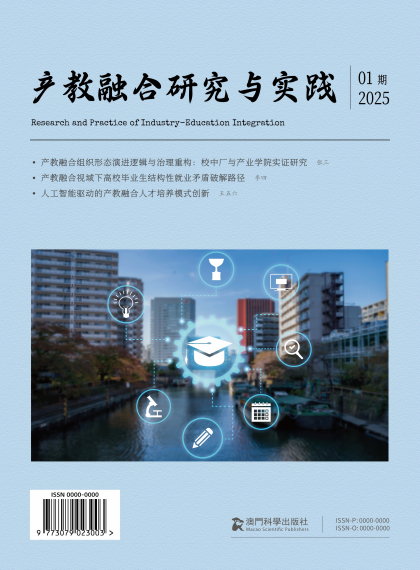摘 要:
在我国,随着工业化、信息化持续进步,企业对高职毕业生的实际应用技术和创新能力需求越来越大。因此,高职院校教学模式的课题成为迫在眉睫的话题。通过以“双导师制”项目为核心的新型驱动教学模式是其中重要的解决方案之一。研究采用了文献研究、实证调查和案例分析等研究方法,探讨了“双导师制”项目驱动教学模式在高职院校的应用及其效果。结果发现,“双导师制”不仅能够激发学生的主动学习意愿,也提高了学生的创新思维和问题解决能力;同时也增强了学校与企业间的紧密合作,提升了高职教育对产业发展的适应性。但此教学模式在实践过程中也遇到了教学资源配置不足、师资队伍建设等问题。因此,高职院校需要调整教学策略,以适应“双导师制”项目驱动教学模式,如增加企业实习资源,强化校企合作,提升师资队伍的教学与实际业界经验等。这一研究对于推动高职教育与行业需求更好地接轨,提升高职生的就业竞争力具有重要的理论和实践意义。
关键词:双导师制;高职教育;校企合作
Abstract:
In China, with the continuous advancement of industrialization and informatization, the demand for practical application skills and innovative abilities of vocational college graduates is increasing among enterprises. Hence, the issue of teaching models in vocational colleges has become an urgent topic. The new driven teaching model centered around the 'Dual Mentor System' project is one of the important solutions. The research uses methods such as literature review, empirical investigation, and case analysis to explore the application and effects of the 'Dual Mentor System' project-driven teaching model in vocational colleges. The results show that the 'Dual Mentor System' can not only stimulate students' willingness to engage in active learning but also enhance their innovative thinking and problem-solving abilities; it also strengthens the close cooperation between schools and enterprises, improving the adaptability of vocational education to industry development. However, this teaching model has encountered issues such as insufficient teaching resource allocation and faculty development in practice. Therefore, vocational colleges need to adjust teaching strategies to adapt to the 'Dual Mentor System' project-driven teaching model, such as increasing internship resources from enterprises, strengthening school-enterprise cooperation, and enhancing the teaching and practical industry experience of the faculty. This research has important theoretical and practical significance in promoting the better alignment of vocational education with industry needs and enhancing the employment competitiveness of vocational students.
Keywords: Dual mentor system; Vocational education; School-enterprise cooperation
--
